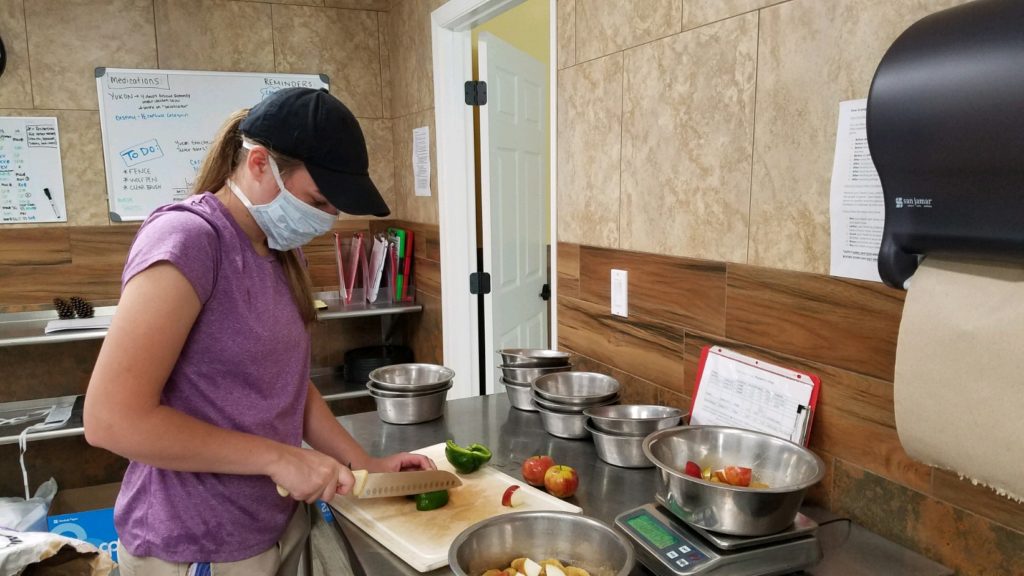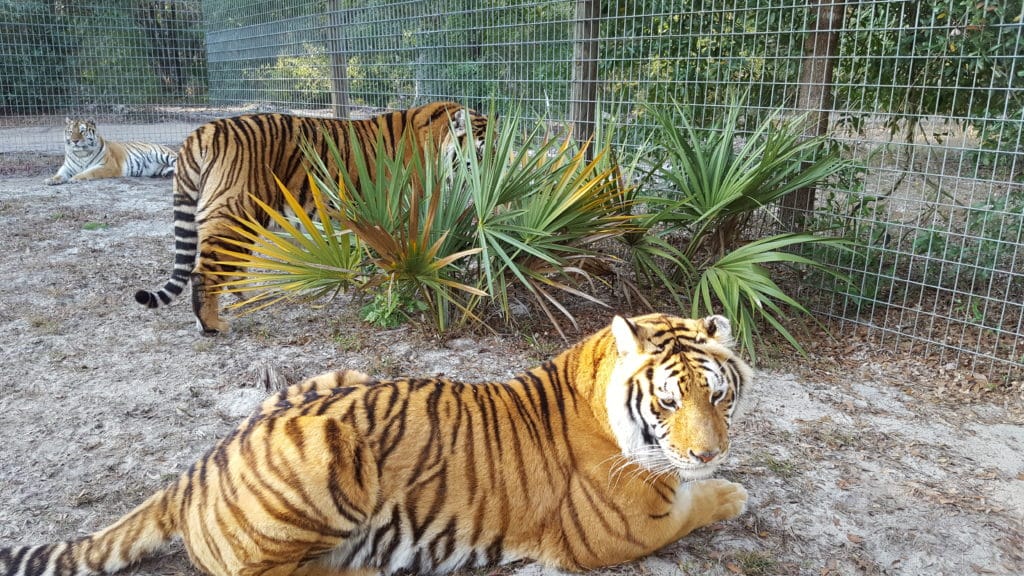The CDC announced from recent studies on COVID-19 that a portion of individuals with coronavirus lack symptoms or who are pre-symptomatic can transmit the virus to others. This means that the virus can spread between people interacting in close proximity—for example, speaking, coughing, or sneezing—even if those people are not exhibiting symptoms, according to the CDC.

It has now been confirmed that the caregivers at the sanctuary must adhere to strict protocol to avoid unknowingly exposing our animals to the virus. We must continue to limit the number of people that enter the sanctuary property and ensure that we protect the animals by having all caregivers continue to practice social distancing, wear masks, wash/sanitize hands throughout the day and continue to be extra-thorough about sanitizing frequently touched surfaces.
Our animals are currently healthy and we are determined to keep it that way
A study, published on the website of the journal Science, was aimed at identifying which animals are vulnerable to the virus so they can be used to test experimental vaccines to fight the COVID-19 pandemic.
SARS-CoV-2 (the virus that causes COVID-19) is believed to have spread from bats to humans. Except for a few reported infections in cats and dogs, there has not been strong evidence that pets can be carriers.

A tiger at the Bronx Zoo in New York City who developed a dry cough and loss of appetite after contact with an infected zookeeper tested positive for the coronavirus on Sunday.
The study, based on research conducted in China in January and February, found cats and ferrets highly susceptible to the virus when researchers attempted to infect the animals by introducing viral particles via the nose.
They also found cats can infect each other via respiratory droplets. Infected cats had virus in the mouth, nose and small intestine. Kittens exposed to the virus had massive lesions in their lungs, nose and throat.
“Surveillance for SARS-CoV-2 in cats should be considered as an adjunct to elimination of COVID-19 in humans,” the authors wrote.
In ferrets, the virus was found in the upper respiratory tract but did not cause severe disease.
Antibody tests showed dogs were less likely to catch the virus, while inoculated pigs, chickens, and ducks were not found to have any strain of the virus.
What does this mean to you, at home with your pets?
You should restrict contact with pets and other animals while you are sick with COVID-19, just like you would with other people. Although there have not been reports of pets becoming sick with COVID-19 in the United States, it is still recommended that people sick with COVID-19 limit contact with animals until more information is known about the virus.
When possible, have another member of your household care for your animals while you are sick. If you are sick with COVID-19, avoid contact with your pet, including petting, snuggling, being kissed or licked, and sharing food. If you must care for your pet or be around animals while you are sick, wash your hands before and after you interact with pets.
More information is available on how to keep people and animals safe at https://www.cdc.gov/coronavirus/2019-ncov/daily-life-coping/animals.html.
